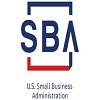The Self-Care Solution: Rx-to-OTC Switch
09/16/2019
Category: Rx-to-OTC Switch
The United States and many European countries are witnessing a trend in medicine where people are administering self-care. The self-care trend may be due to many factors including high costs in medical care, busy schedules, and the need to get treated immediately. Many pharmaceutical companies are taking advantage of this trend by converting prescription drugs to over-the-counter, which is known as Rx-to-OTC Switch. An Rx-to-OTC Switch must be submitted to the FDA for approval. The key components needed for a successful Rx-to OTC Switch include a consumer-friendly label, consumer studies and a strategic regulatory plan.
Consumer-Friendly Label
The original prescription label will need to be translated into a clear, more concise label that is easier to read for the consumer. The purpose of the label change is for the consumer to be able to self-diagnose, self-treat and self-manage their condition. The label must have the following sections:
- Active ingredients, including the amount in each dosage unit
- Purpose
- Uses (indications)
- Specific warnings, including the circumstances when the product should be avoided, possible side effects, and when to contact a doctor
- Dosage instructions (when, how and the frequency of taking the drug)
- Inactive ingredients, to help consumers avoid ingredients that may cause allergic reactions
The FDA will closely review the label. Due to the importance of Rx-to-OTC Switch approval and failure to warn lawsuits, it may be in the best interest of the sponsor to hire an Rx-to-OTC consulting services firm or a failure to warn expert that provides FDA OTC drugs consulting services.
Consumer Studies
The sponsor will need to conduct consumer studies to ensure the product is safe for the consumer to use without direction from a doctor. The OTC consumer studies are:
- Label Comprehension Study- understanding the key label message
- Self-Selection Study- choosing the right product
- Actual Use Study- using according to labeled directions
- Human Factors Study- interacting with the product
Also Read: Common Reasons for IND Clinical Holds
If the sponsor plans to propose a new indication or a new patient population, additional new studies may be required. An FDA OTC drugs consulting services firm will be able to recommend all studies needed for a successful Rx-to-OTC Switch.
Strategic Regulatory Plan
The drug developer must be knowledgeable in developing a clear regulatory strategy to have their Rx-to-OTC Switch approved by the FDA. Contracting for Rx-to-OTC consulting services can offer the drug sponsor the necessary direction and helpto submit the New Drug application (NDA) or a Supplemental New Drug Application (sNDA). It is important to schedule milestone meetings with the FDA during OTC development, such as Pre-IND, End of Phase 2, and Pre-NDA. The review timelines are ten months. Drug consultants can help drug developers in determining when an Rx-to-Switch should be initiated.
With the Nonprescription Safe Use Regulatory Expansion (NSURE) initiative, the FDA is working on expanding regulatory pathways for Rx-to-OTC Switches. The introduction of new Rx-to-OTC products to the market will enable quicker therapeutic outcomes for those who do not have the money or time to visit a general practitioner. When prescription drugs have low potential for misuse and abuse, there is a great chance that the drug can be converted into an OTC drug.The safety margin for the drug must be that the benefits of the drug being available over-the-counter outweighs the risks. The benefits and impact of Rx-to-OTC drugs will provide consumers with expeditious and convenient access to medicines allowing for self-care.
Author Information
Christina Sanchez Miller, MPH has over 20 years of management, biologics, quality assurance and research experience in the medical field. She is a published author in scientific books, papers and has presented at several international conferences. Christina has developed medical applications in the biologics field. Her experience includes operations and consulting in FDA Adverse Event Reporting, FDA Product Deviation Reporting, FDA 483s, cGTPs, infection control, certified ISO Class 5, 7, 8 development and maintenance, QIC and auditing.
BRG is a global scientific & regulatory consulting firm with extensive experience in the strategic development of drug products, biologics, medical devices, combination products and in FDA regulatory affairs. BRG is an NDA consulting firm focusing on ANDAs, INDs, and NDAs. The opinions and statements in this blog are those of the authors and do not necessarily reflect those of BRG. This blog is based on personal experience and reviews of information publicly available or identified in other database searches.
tagging: fda otc drugs consulting services > rx-to-otc consulting services


